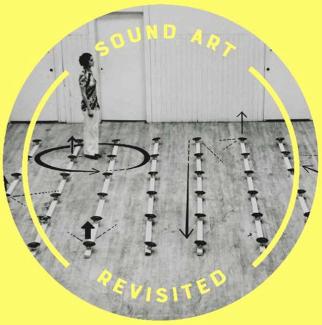Event
Sound Art Revisited: Alan Licht in conversation w/ Julie Beth Napolin
POSTPONED - DATE TBA
The first edition of Sound Art Revisited (published as Sound Art: Beyond Music, Between Categories) served as a groundbreaking work toward defining this emerging field, and this fully updated volume significantly expands the story to include current research since the book's initial release. Viewed through a lens of music and art histories rather than philosophical theory, it covers dozens of artists and works not found in any other book on the subject.
Locating sound art's roots across the centuries from spatialized church music to the technological developments of radio, sound recording, and the telephone, the book traces the evolution of sound installations and sound sculpture, the rise of sound art exhibitions and galleries, and finally looks at the critical cross-pollination that marks some of the most important and challenging art with and about sound being produced today.
ABOUT
Alan Licht has lectured widely on sound art and served on faculty in the Music/Sound department at the Bard College Milton Avery Graduate School of the Arts. He is a contributing music editor at BOMB magazine and writes frequently for Artforum, Art Review, Parkett, Organised Sound, the WIRE. He is editor of the book Will Oldham on Bonnie Prince Billy (Faber & Faber/ W.W. Norton, 2012).
Julie Beth Napolin is a scholar, musician, and radio producer. She is former Associate Director of The Digital Yoknapatawpha Project, a trustee of the Joseph Conrad Society of America, and an officer-at-large of the William Faulkner Society.
Her work participates in the fields of sound studies, modernism, digital humanities, film and media studies, critical race studies, gender and sexuality studies, narrative and novel theory, and psychoanalysis. She is particularly interested in the history of sound reproduction and its intersections with the history of the novel, film, art, and media, asking what practices of technological listening can tell us about the politics of form.
